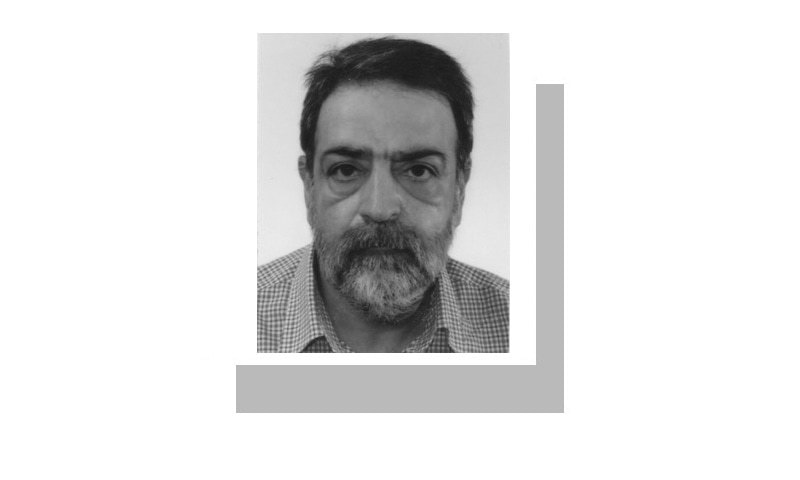
THE BBC World Service has lately been heavily promoting a podcast titled The Assassination. The first episode goes out today. In it, the BBC’s former Pakistan correspondent Owen Bennett-Jones delves into a calamity from 10 years ago, and holds out the prospect of hitherto unrevealed details.
I look forward to listening, while obviously wishing that the catastrophe it commemorates had never occurred. Not because Benazir Bhutto’s return to Pakistan and prospective cohabitation with Pervez Musharraf would have paved the way for a smooth transition to meaningful democracy, let alone the rout of the Pakistani Taliban. But because, as in the case of her father three decades earlier, hers was not a political career that deserved to end this way.
The deep wounds inflicted on the national psyche on April 4, 1979, and Dec 27, 2007 are ineradicable, and at least in the latter case the pain remains palpable. Let us not overlook Sept 20, 1996, though — the day the Karachi police gunned downed the sitting prime minister’s only surviving brother. It is almost inconceivable that this particular murder could have been perpetrated without direct orders, or at the very least a vigorous nod, from on high in Islamabad.
Some wounds remain ineradicable.
I am also disinclined to share the view that Benazir’s grief at her brother’s violent demise was a put-on. The insensitive reaction of her chosen president was ungracious, and compounded not long afterwards by his dismissal of her second government. Perhaps Farooq Leghari sincerely believed he was doing the nation a favour by removing Asif Zardari from the prime ministerial abode. And maybe he wasn’t entirely mistaken in that respect. He could hardly have been unaware, though, of the obvious alternative.
During the 11 years power alternated between parties or alliances led by Benazir Bhutto and Nawaz Sharif, it wasn’t terribly difficult to choose between the two. Benazir’s return from exile in 1986 unleashed a popular wave of resentment against the tyranny of Ziaul Haq, and there was a sense of poetic justice when she assumed power two years later, despite the best efforts of the powers that be — elements among whom had most probably arranged for the dreadful dictator’s fiery exit.
Without a clear parliamentary majority, though, and with the intelligence’s strategy having paid dividends in Punjab, Benazir felt obliged to accept the absurd conditions imposed upon her. These included incorporating elements of the discredited order in her administration. The change she represented was tempered by symbols of continuity.
The sense of continuity would, no doubt, have been much stronger had Zia protégé Nawaz Sharif assumed power in 1988, rather than two years later, following a flawed electoral exercise after the military-bureaucratic complex decided that even a Bhutto administration that had done little to rattle the status quo was no longer acceptable.
Benazir’s second stint in power, slightly longer than the first, was in some ways even less illustrious, distinguished as it was by the Afghan Taliban exfiltration, subsequent allegations of the prime minister’s personal role in nuclear proliferation, her husband’s stint as minister for investment, and a very public feud with her mother, apart from her brother’s assassination.
The PPP’s relegation to a rump in the 1997 elections was a consequence chiefly of one-time supporters apparently staying home rather than switching sides. The Sharif landslide was based on an abysmal turnout.
It was hard to see Benazir as a symbol of democracy when she returned from her second exile in 2007, following an Anglo-American-mediated power-sharing arrangement with another military dictator. Even 20 years earlier, she had accepted that the route to power passed through Washington — and her neoliberal inclinations were reflected in her hero-worship of Margaret Thatcher.
Becoming the first woman to be elected head of government in a Muslim country where misogyny was rife, and ruthlessly exploited by her opponents, was certainly no mean feat, notwithstanding the region’s inclination towards dynastic politics. Being viewed as a relatively progressive force was considerably easier if the comparisons were restricted to Zia and Sharif.
Twenty years before his daughter, Zulfikar Ali Bhutto (the 90th anniversary of whose birth falls on Jan 5) had harnessed a potentially revolutionary upsurge in West Pakistan, raised popular consciousness, and conquered Sindh and Punjab in the nation’s first general elections. The first year or so of the PPP government held out the promise of forward-looking social democracy. In the years that followed, the regime sporadically shed its progressive credentials and personnel, kowtowing every now and then to obscurantism. Perhaps ZAB’s biggest error, though, was not to have striven to tether the military to a role suitable in a civilian-led democracy.
But then, the depressing saga of the Bhuttos is a monumental Pakistani tragedy of Shakespearean proportions precisely because it encapsulates a host of character flaws and missed opportunities.
Published in Dawn, December 27th, 2017











































